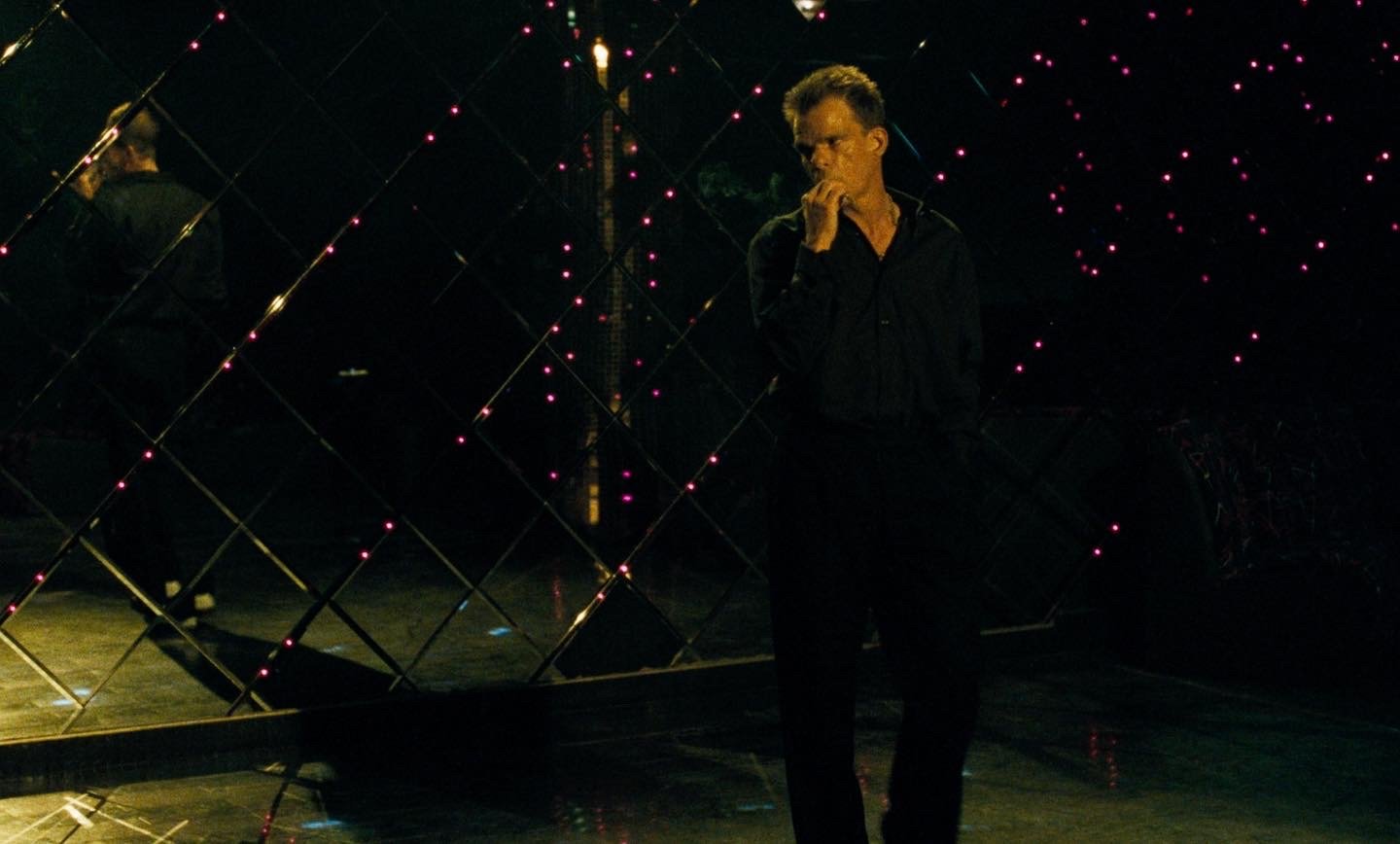2025 Tarkovsky Prize 2nd Place: Caitlin Yoffie
Beau Travail: The War Within
by Caitlin Yoffie
Claire Denis’ Beau Travail, a loose adaptation of Herman Melville’s novel Billy Budd, Sailor, is an unconventional, artful take on a war film. The film is full of contradictions: order and freedom, beauty and violence, repression and desire. Stripped down to the essence of the novel, the film’s minimalist narrative is told through movement, rhythm, and striking visuals. Through these elements, Denis explores the complexity of masculinity, identity, and military life. Beau Travail isn’t just a war film, it’s an introspection on emotional isolation and the destructive side of repression.
The French Foreign Legionnaires are stationed in Djibouti, their bodies and minds shaped by the strict demands of the military. The unrelenting heat of the African desert mirrors the Legionnaires’ emotional desolation. The vast, dry, land reflects the inner emptiness of these men, especially Galoup, the film’s focus. The barren landscape is an extension of Galoup’s mind–his rigid obedience to military structure suppresses something inside of him, something that emerges as resentment toward Sentain, a young recruit whose easy proficiency in the strict system threatens Galoup’s fragile sense of control. Galoup’s emotional repression isn’t communicated through dialogue, but through his body, through the controlled, almost dance-like choreography of military drills. The physicality of the soldiers is both hypnotic and oppressive, representing the suffocating structure of military life. Denis captures masculinity not as an inherent strength, but as something trained into the body, something that can ultimately be destructive.
The film’s structure adds to the psychological depth. Beau Travail is told in a fragmented, diary-like narration from Galoup’s perspective, presenting memory as unreliable, and easily distorted by regret and resentment. The film moves smoothly between past and present, immersing us further in Galoup’s fragmented memories. This disjointed sort of storytelling reflects his unraveling inner state, allowing us to experience his world as he does–through his subjective recollections instead of a conventional narrative style.
Galoup’s resentment of Sentain is never explicitly explained, but every shot is full of suggestion. Sentain represents something Galoup can’t place–maybe freedom, youth, or an innocence that Galoup has lost. Or maybe it’s desire, changed into hatred by the repression that controls Galoup’s life. His need for control comes out in his harsh treatment of Sentain, ending in his decision to abandon him in the desert. This moment is extremely important, not because it’s dramatic, but because of how empty it feels. Galoup’s actions aren’t driven by logic, but by buried emotion. Ultimately, this emotional repression destroys not just Sentain, but Galoup himself.
Denis further defies a conventional war film arc by denying us an actual war. The film is centered around preparation–constant drills, training exercises, and military routines–but the war never comes. This sense of waiting reflects Galoup’s mind, as if both he and the audience are bracing for an inevitable explosion that never delivers. Instead, the battle is internal. It’s a slow breakdown of Galoup’s self. The absence of a war adds to the tension rather than subtracting from it. Instead of violence and explosions, we watch as Galoup quietly falls apart on the inside.
This collapse ends in an unforgettable final scene. Galoup, discharged from the Legion, is left with nothing–no rank, no purpose, no identity. The man who used to command soldiers is now powerless. “Unfit for life, unfit for civilian life,” he writes in his diary, marking the end of his life. Then, under the glittering lights of a nightclub, he dances.
This final dance, Galoup’s swan song, set to Corona’s Rhythm of the Night, is at the same time refreshing and tragic. Here, finally, Galoup moves with complete freedom, unbound from military order. His body, once stiff and restrained, now moves without control. His moment of release is also an ending. It’s as if in giving in to the emotions he’s suppressed for so long, there is nowhere left for him to go. The dance is a final, desperate act of expression before his inevitable end.
Denis created Beau Travail not as a typical war film, but as a personal examination of masculinity, identity, and emotional repression. The film hints that structures made to create order–whether it’s military discipline or the strict definitions of masculinity–can ultimately destroy the people they are imposed on. Galoup’s tragedy isn’t just that he is expelled from the Legion, but that he has never really known himself outside of it. He isn’t a hero or a villain, but something more complex: a man whose final act of freedom comes too late.
By the time Galoup dances, the audience recognizes what he can’t–freedom is only possible once one acknowledges desire, pain, and regret.

